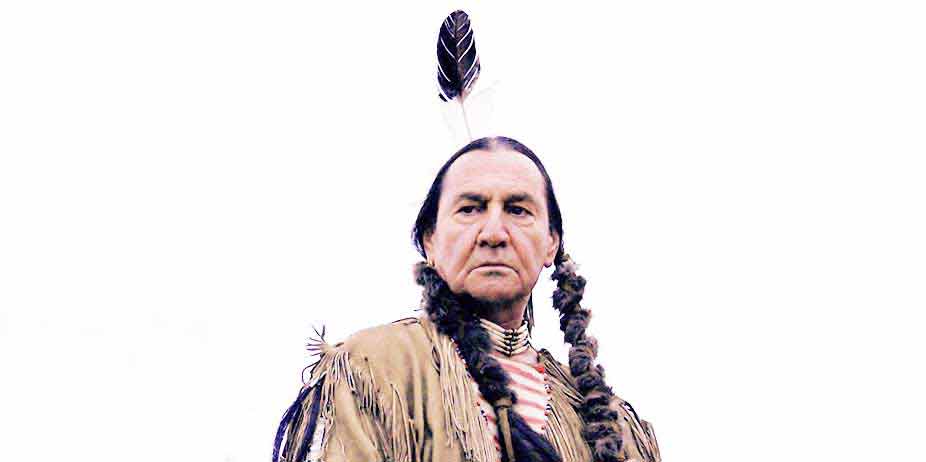
Bury My Heart at Wounded Knee (2007)
HBO is known for its hard-hitting, realistic dramas looking in on American history, sometimes with a modern slant. This film is no exception.
The bloody Sioux massacre of General Custer and his men at Little Big Horn has left the American public stunned and gives Senator Henry Dawes (Aidan Quinn) much to contend with in Washington. An advocate for the humane rights of the Indians, Dawes hopes to find a means of paying the Indians for use of the properties in and around the Black Hills. But it is difficult, since many of his fellow senators are not overly concerned with the welfare of the Indians. Meanwhile, Sitting Bull (August Schellenberg) refuses to be contained on a reservation and travels north, into Canada, only to discover his tribe is crumbling around him. One of his young warrior is removed from the tribe and sent to English-speaking schools. The resentful boy grows into a successful doctor with a white man's name, Charles Eastman (Adam Beach), but his idealistic hopes for the Indians are crushed when he discovers just how they truly live on the reservations. Together with the woman he loves, Elaine Goodale (Anna Paquin), he strives to fight for their rights and instead winds up bearing witness to a terrible tragedy.
Loosely based on an award-winning book, this film is more of a biographical take on events than a story in the truest since, as its scope and focus are on little vignettes rather than the overall image. What it does very well, however, is make you empathize with the plight of the Indians on the reservation; its strongest moments come from the talented cast as through their facial expressions we come to understand just how demoralizing the reservation is for the Indians and especially, Sitting Bull. I was expecting a preachy film with a bias but to my surprise, while it does favor the Indians, it does not particularly depict the white men as entirely "evil," just often misguided. (Even so, there are some good white men involved.) It also does not shy away from stating the truth, that the Indians were responsible for massacring other tribes and engaging in all-out warfare over hunting grounds. But the real message here is one of injustice and that cannot be argued against -- what happened with the Sioux and other Indian tribes was indeed a great injustice.
The cast is wonderful, although admittedly there isn't much romantic chemistry between the leads, and everything about it is very authentic in its approach -- the costumes, scenery, etc., are spot on, but much of the dialogue has been modernized and it's doubtful the Indians would have used certain terms. I loved the use of black and white photographs floating on the screen to represent different historical figures and transitions between events, although at times the pacing is a bit off and some unusual editorial choices occasionally intrude into the overall flow. Having not read much about this particular incident and time period, I was kept guessing what would happen and thus experienced the full emotional impact. People familiar with the book, however, have complained that it is very truncated, runs events together that were distinctly separate, and doesn't hold the emotional rush of the written word.
Indian children are forced to choose Christian names before they are listened to in school. It's inferred that Christianity eradicates the Indian way of life, but some of the Indians are also "Christ-worshippers" themselves, and bear crosses. Charles Eastman does choose to keep a cross rather than throwing it into the river. (Interestingly, many Indians to this day follow a less-traditional faith in Christ.) References are made to their individual gods and traditions, including a prophecy from one of their prophets that the white men will soon be wiped from the face of the earth. Overall, I found it was an interesting and often touching way to spend two hours, and a reminder that not all our nation's choices in the past were good ones.
Sexual Content:
There is
some vulgar but tame references to sex -- Sitting Bull
says another chief has been "mounted like a woman,"
implying he has given in to the white men too soon; he
says it is the white man's wish that Indians "cut off
their balls" and cease reproducing.
Language:
One f-word.
Violence:
Early on we see a man being
scalped (showing the bloody top of his head); other
gunfire exchanges are shown, in which people are shot
and killed. One main character is shot at point blank
range through the head (blood spurts). Two young men are
whipped for stealing horses. Indians shoot cattle in a
pen and are shown carving up and handling meat. Battle
wounds are shown up close, including with blood and
bullets lodged in flesh. Although not graphic, a scene
near the end in which women and children are mowed down
with gunfire may be emotionally hard to watch.
Other:
None.
